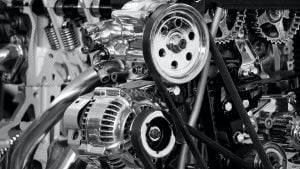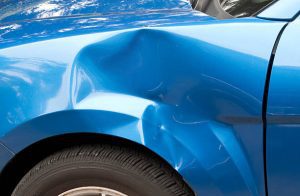Essential Car Care Tips for New Drivers: A Comprehensive Guide


Essential Car Care Tips for New Drivers: A Comprehensive Guide


Introduction
As a new driver, it is important to understand the significance of car care in ensuring the safety, performance, and longevity of your vehicle. Regular maintenance and proper care will not only help prevent breakdowns but also save you from costly repairs in the long run. In this comprehensive guide, we will provide you with detailed steps and expert tips on how to effectively care for your car. From routine maintenance tasks to proactive measures, we’ve got you covered. So let’s dive in and explore these essential car care tips for new drivers!
Table of Contents
- Why Car Care is Important for New Drivers
- Establishing a Car Maintenance Schedule
- Essential Car Care Tasks
- Checking and Maintaining Fluid Levels
- Monitoring Tire Health
- Changing the Engine Oil
- Replacing Filters
- Inspecting and Replacing Wiper Blades
- Checking the Battery
- Ensuring Proper Lighting
- Maintaining the Cooling System
- Taking Care of the Brakes
- Keeping the Interior Clean
- Protecting the Exterior
- Dealing with Car Emergencies
- Proactive Measures for Car Care
- Defensive Driving
- Regular Car Washes
- Parking Considerations
- Being Mindful of Weight and Load
- Fuel Efficiency Practices
- Conclusion
1. Why Car Care is Important for New Drivers
Understanding the importance of car care is vital for new drivers. Regular maintenance not only ensures your safety but also extends the lifespan of your vehicle and helps maintain its resale value. By keeping up with routine maintenance tasks, you can identify potential issues early on and prevent costly repairs.
2. Establishing a Car Maintenance Schedule
Creating a car maintenance schedule is crucial for staying organized and ensuring that all necessary tasks are performed at the appropriate intervals. Refer to your vehicle’s owner’s manual for the manufacturer’s recommended maintenance schedule and customize it based on your driving habits and conditions.
3. Essential Car Care Tasks
Let’s explore the essential car care tasks that every new driver should be familiar with:
Checking and Maintaining Fluid Levels
Regularly check the levels of essential fluids such as engine oil, coolant, transmission fluid, power steering fluid, and brake fluid. Ensure that they are at the appropriate levels and top them up or have them flushed and replaced as needed.
Monitoring Tire Health
Regularly inspect your tires for signs of wear, uneven tread, or damage. Check the tire pressure using a reliable tire pressure gauge and adjust it to the recommended levels. Rotate the tires periodically and consider getting a professional alignment and balancing.
Changing the Engine Oil
Follow the manufacturer’s recommended oil change intervals and have your engine oil and oil filter changed accordingly. Fresh oil ensures proper lubrication and helps keep the engine running smoothly.
Replacing Filters
Regularly inspect and replace filters such as the engine air filter, cabin air filter, and fuel filter. Clean or replace them based on the manufacturer’s recommendations to maintain good air quality and prevent contaminants from entering the engine.
Inspecting and Replacing Wiper Blades
Check your wiper blades for signs of wear, cracking, or streaking. Replace them at least once a year or when they no longer provide clear visibility during rain or snow.
Checking the Battery
Inspect the battery terminals for any corrosion and ensure they are clean and secure. Test the battery’s voltage regularly and replace it if it shows signs of weakness or doesn’t hold a charge.
Ensuring Proper Lighting
Regularly check all exterior lights, including headlights, taillights, brake lights, and turn signals. Replace any bulbs that have burned out and ensure that all lights are functioning properly.
Maintaining the Cooling System
Check the coolant level and inspect the radiator hoses for any leaks or damage. Flush and replace the coolant as recommended by the manufacturer to prevent overheating and engine damage.
Taking Care of the Brakes
Regularly inspect the brake pads, rotors, and calipers for wear and tear. Ensure that the brake fluid is at the correct level and have the brakes serviced or repaired if you notice any issues such as noise, vibration, or reduced braking performance.
Keeping the Interior Clean
Maintain a clean interior by regularly vacuuming the carpets and upholstery, wiping down surfaces, and using appropriate cleaners to remove stains. Keep the cabin clutter-free to ensure a comfortable and enjoyable driving experience.
Protecting the Exterior
Wash your car regularly to remove dirt, debris, and harmful substances that can damage the paint. Apply a protective wax or sealant to preserve the paint finish and protect it from the elements.
Dealing with Car Emergencies
Be prepared for unexpected situations by keeping essential items in your car, such as a spare tire, jack, jumper cables, flashlight, and first aid kit. Familiarize yourself with basic car maintenance tasks, such as changing a flat tire or jump-starting a battery.
4. Proactive Measures for Car Care
In addition to regular maintenance, adopting proactive measures can further enhance your car’s performance and longevity. Consider the following tips:
Defensive Driving
Practice defensive driving techniques to minimize the risk of accidents and reduce wear and tear on your vehicle. Avoid aggressive maneuvers, maintain a safe following distance, and anticipate potential hazards.
Regular Car Washes
Wash your car regularly, especially during the winter months or after driving on salted roads. Regular washing helps remove corrosive substances and protects the paint and undercarriage from damage.
Parking Considerations
Whenever possible, park your car in a covered or shaded area to protect it from the sun’s harmful UV rays and minimize paint fading. Avoid parking under trees to prevent potential damage from falling branches or bird droppings.
Being Mindful of Weight and Load
Avoid overloading your car with excessive weight, as it can strain the suspension, brakes, and tires. Remove unnecessary items from the trunk and roof to improve fuel efficiency and reduce stress on the vehicle.
Fuel Efficiency Practices
Adopt fuel-efficient driving practices, such as maintaining a steady speed, avoiding unnecessary idling, and using cruise control when appropriate. Properly inflated tires and regular maintenance also contribute to better fuel efficiency.
5. Conclusion
As a new driver, taking care of your car is not only a responsibility but also an investment in your safety and vehicle’s longevity. By following the essential car care tips outlined in this guide, you can ensure that your car remains in excellent condition and performs optimally for years to come. Establish a maintenance schedule, perform routine tasks, and practice proactive measures to keep your car running smoothly and efficiently. Remember, a well-maintained car will provide you with a safe and enjoyable driving experience.








